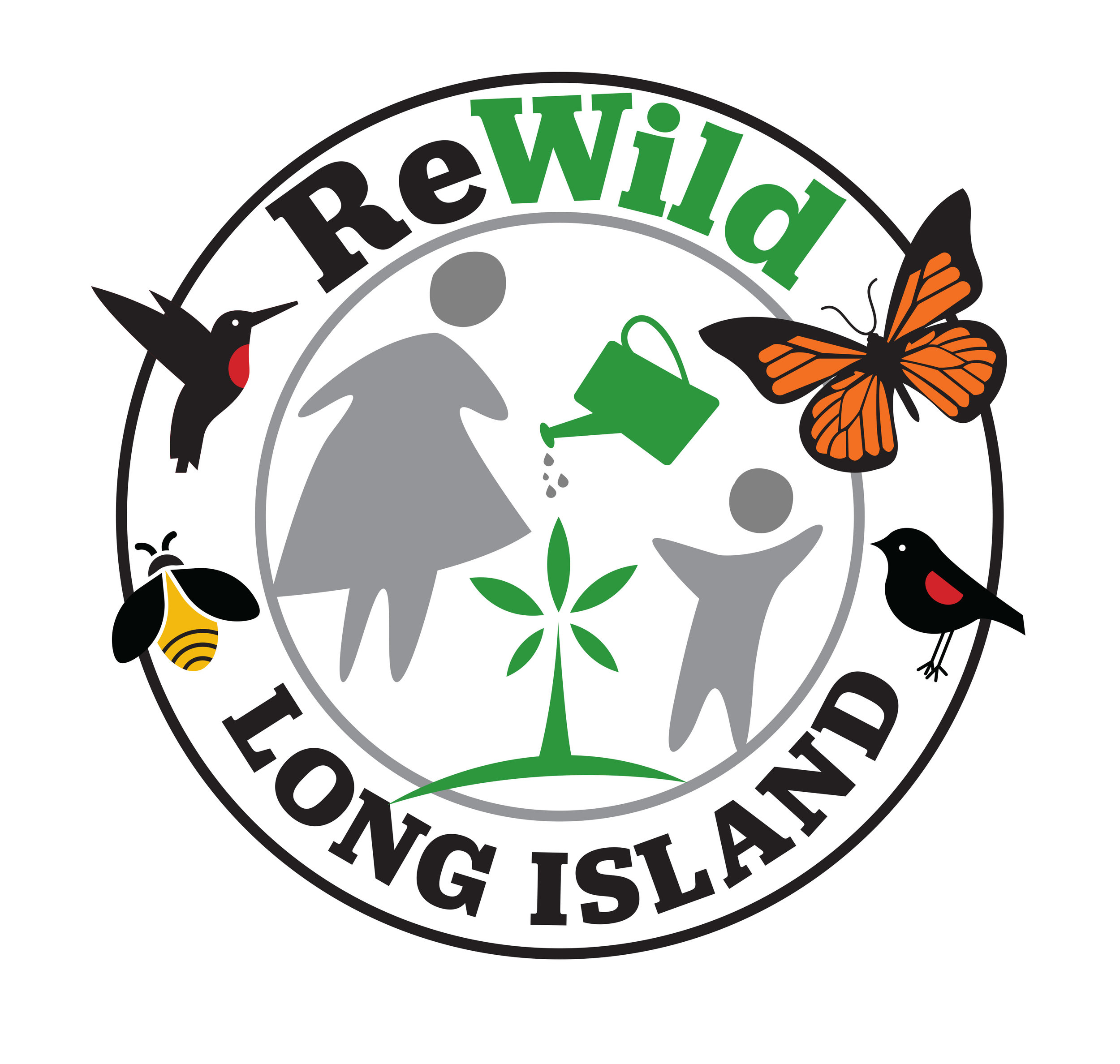Why ReWild?
Beautiful and healthy green spaces bring out the best in us. These green spaces -- backyards, side- and front-lawns, tree-lined streets, parks, golf-courses, and fields -- are central to our identity as urban or suburban communities in America. However, not all green spaces are created equal. Much of the “green” that our communities adopt are non-native mono-cultures that require a high level of chemical and labor inputs to maintain, with negative impact on biodiversity, air and water quality and environmental health. Our private and public spaces are largely represented by Conventional, High-Input, Exotic, Mono-cultural (CHEM) Landscapes.
The cultural normalization of yard care including sterile short cut grass is the reason we continue to embrace CHEM landscapes. When introduced to an alternative that includes attracting hummingbirds and butterflies, it’s not difficult to convince the home owner that native plant gardening is more desireable. At Rewild Long Island we’re part of a movement invested in making it normal to support life in your green spaces.
ReWilding is the act of bringing life-supporting native plants with all their genetic diversity into our private and public spaces, so that our lives become a little less sterile and a little more wild.
Most of our commercial plants are genetic clones - try planting rose seeds or tulip seeds, and you will appreciate why these are propagated as cuttings or bulbs. With native plants, we recommend growing genetically diverse polycultures rather than cloned cultivars, where possible.
We transform green spaces into bio-diverse wildlife habitats, featuring native plants and trees, that attract bees, birds and butterflies. We advocate for climate-conscious gardening, avoiding needless pesticide and herbicide use, eliminating water waste and refraining from the use of gas powered mowers/leaf blowers. There is so much we can do to be part of the solution to our current experience of climate crisis.
At the same time, we are not purists! We all appreciate beautiful Zinnias or Hydrangeas and the allure of having blooms through the season. Every garden is a balance — we ask that you include native plants and pollinator friendly exotics in your mix so that you have the best balance of aesthetics, ease of maintenance, low chemical use and environmental impact.
Earth-friendly practices are our birth-right. We are completely part of the web of life, never on top of the food chain, but rather deeply embedded in a highly interdependent and responsive network of living beings. Taking care of the earth we live on brings us back to what matters.
Join the Rewild movement and you’ll be rewarded in so many ways.
Earth care is self-care!
“ReWilding is the act of bringing life-supporting native plants with all their genetic diversity into our private and public spaces, so that our lives become a little less sterile and a little more wild.”
ReWilding is the act of protecting, restoring, and creating new habitats to support biological diversity, a term which refers to the variety of life at all levels - from biological communities to species to the genetic differences of populations within a species that are crucial to maintaining our healthy local ecological landscape. The problems we seek to counter are climate change, habitat loss, spread of invasive species, pollution, and over exploitation of natural resources, all of which are harming local and global biodiversity. The habitats we create with locally sourced native plants and food plants serve as part of a network of connections or stepping-stones that link populations of wildlife over the course of their migratory cycles and ranges. By restoring local habitats, promoting best practices including the use of non-toxic materials, and by education and advocacy, we are helping to promote the health of the landscape and an ecologically-minded culture.
Not only does ReWilding help the world at large and your community in particular, but site-appropriate Native Plants consume less water, no fertilizers nor fossil-derived products, saving us money, time and resources!


